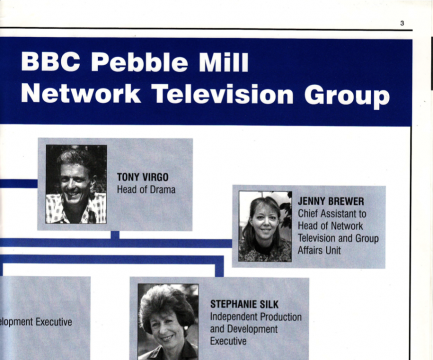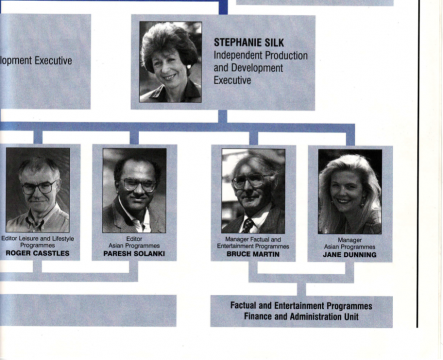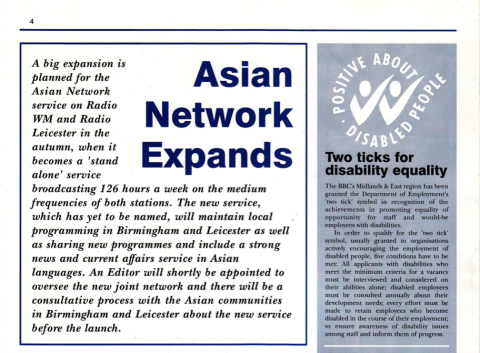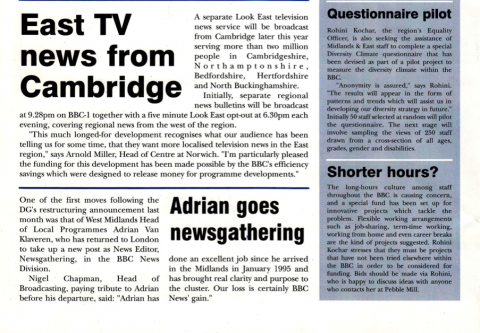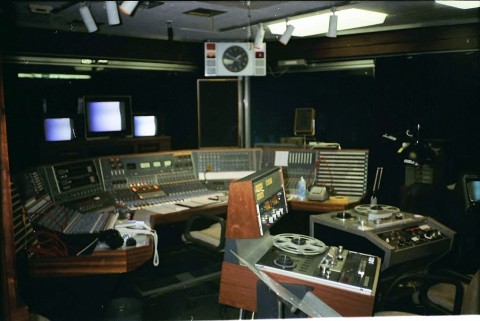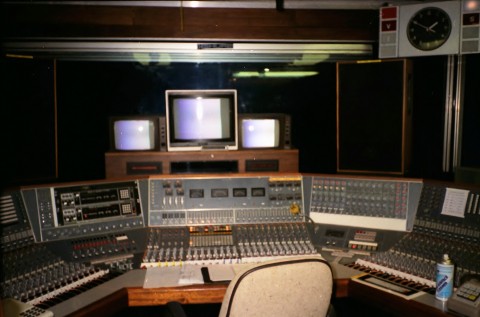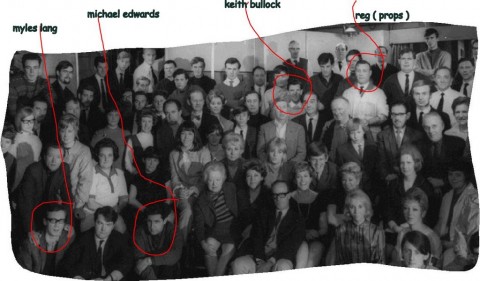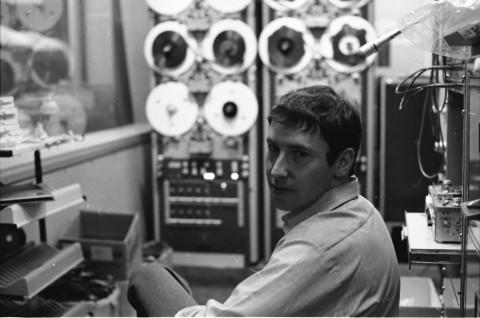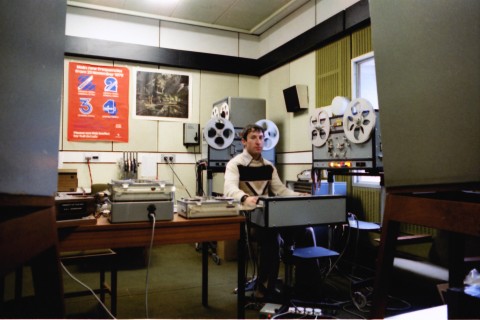Category: Building
‘Newcomers’ photo with some names from Kevin Lakin
Copyright resides with the original holder, no reproduction without permission.
The photo is of the 1960’s drama ‘Newcomers’, recorded at Gosta Green.
Myles Lang and Michael Edwards were from Design, Keith Bullock was from Lighting. Two back from Reg, white coast balding head, Fred Parsons, Lighting Electrician.
Thanks to Kevin Lakin, and Adrian Parsons for identifying some of the members of staff in the photo.
Please add a comment if you can identify others in it.
Studio B stripped down – photos by Philip Morgan
Photos by Philip Morgan, no reproduction without permission.
These photos were taken by Philip Morgan in November 2004, on the viewing days before the auction of Pebble Mill equipment, after the building was decommissioned, but before demolition.
The photos are of Studio B, which was the Midlands Today Studio, on the first floor, overlooking the courtyard.
Midlands & East News 1996
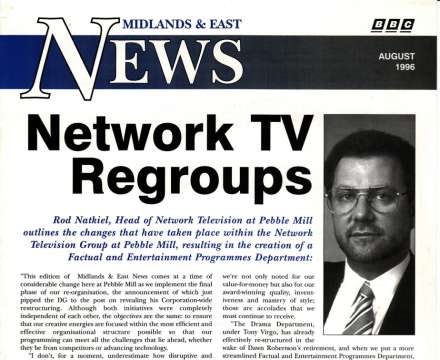
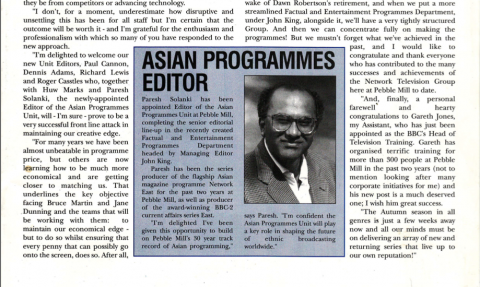
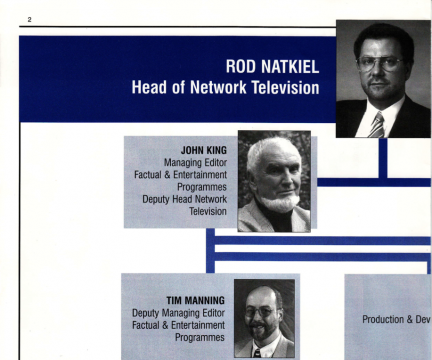
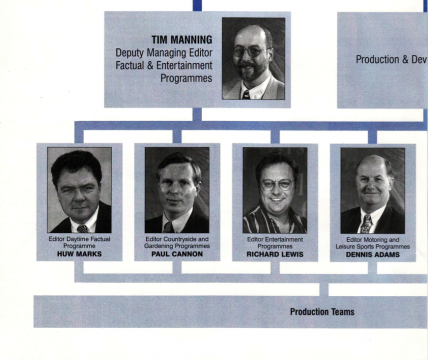 Thanks to Tim Manning for making this edition of ‘Midlands & East News’ from Aug 1996 available.
Thanks to Tim Manning for making this edition of ‘Midlands & East News’ from Aug 1996 available.
Interestingly some of the topics mentioned here seem as relevant today as back in 1996: re-organisation and re-structuring are perennial themes. The short articles at the end about trying to reduce working hours and introducing more flexible working never seemed to be widely implemented in production areas, despite the good intentions. The Asian Network was becoming more established in the mid 1990s, and the Asian Programmes Unit was an important part of production at Pebble Mill.
